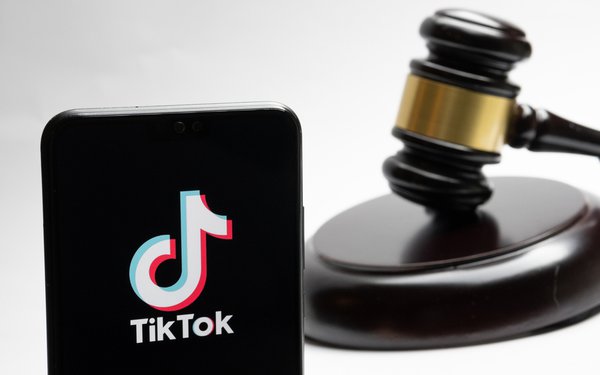
A ban on TikTok would “cause an extraordinary disruption in
Americans’ ability to engage with the content and audiences of their choice online,” civil rights watchdogs told the Supreme Court on Tuesday.
The groups are backing TikTok's request to block a law that will prohibit app stores and websites from distributing
TikTok unless it separates from parent company China-based ByteDance.
“Without this court’s prompt intervention, the government will soon ban Americans from accessing a social
media application, TikTok, that millions use every day to communicate, learn about the world, and express themselves,” the American Civil Liberties Union, Electronic Frontier Foundation and
Knight First Amendment Institute at Columbia University write in a
friend-of-the-court brief.
advertisement
advertisement
The Protecting Americans From Foreign Adversary Controlled Applications Act (H.R. 7521), passed earlier this year, gives ByteDance a January 19 deadline to find a buyer for TikTok, and allows the U.S.
president to extend the deadline until mid-April. President Joe Biden, who will still be in office January 19, hasn't yet indicated whether he will do so.
When lawmakers passed the measure,
they expressed concerns that without a divestiture, the Chinese government may be able to access data about TikTok's users, and use the app to influence public opinion.
TikTok and a group of
content creators previously asked the D.C. Circuit Court of Appeals to invalidate the law, arguing that the statute violates the free speech rights of TikTok as well as its users. Among other
arguments, TikTok said that prohibiting an app due to fears about its content represented an unconstitutional attempt to suppress speech based on viewpoint.
That court sided against TikTok, ruling on December 6 that the law's curbs on speech are justified by national
security concerns. The appellate judges said in their opinion that Congress was worried about the risk of the Chinese “covertly manipulating content on the platform.”
The digital
rights groups counter in their friend-of-the-court brief that even if the law is framed as targeting “covert manipulation,” it's still an unconstitutional content-based restriction on
speech.
“The record is clear that the government’s concerns about “covert manipulation” are at bottom concerns about propaganda -- i.e. about Americans’ access to
the perceived content and viewpoints presented on TikTok,” the groups write.
“There is no legitimate (let alone compelling) interest in throttling Americans’ ability to
receive information, even where the government regards that information as 'communist political propaganda' or 'the seeds of treason,” they add, quoting from a 1965 Supreme Court decision invalidating a law that restricted postal delivery of foreign communist propaganda.